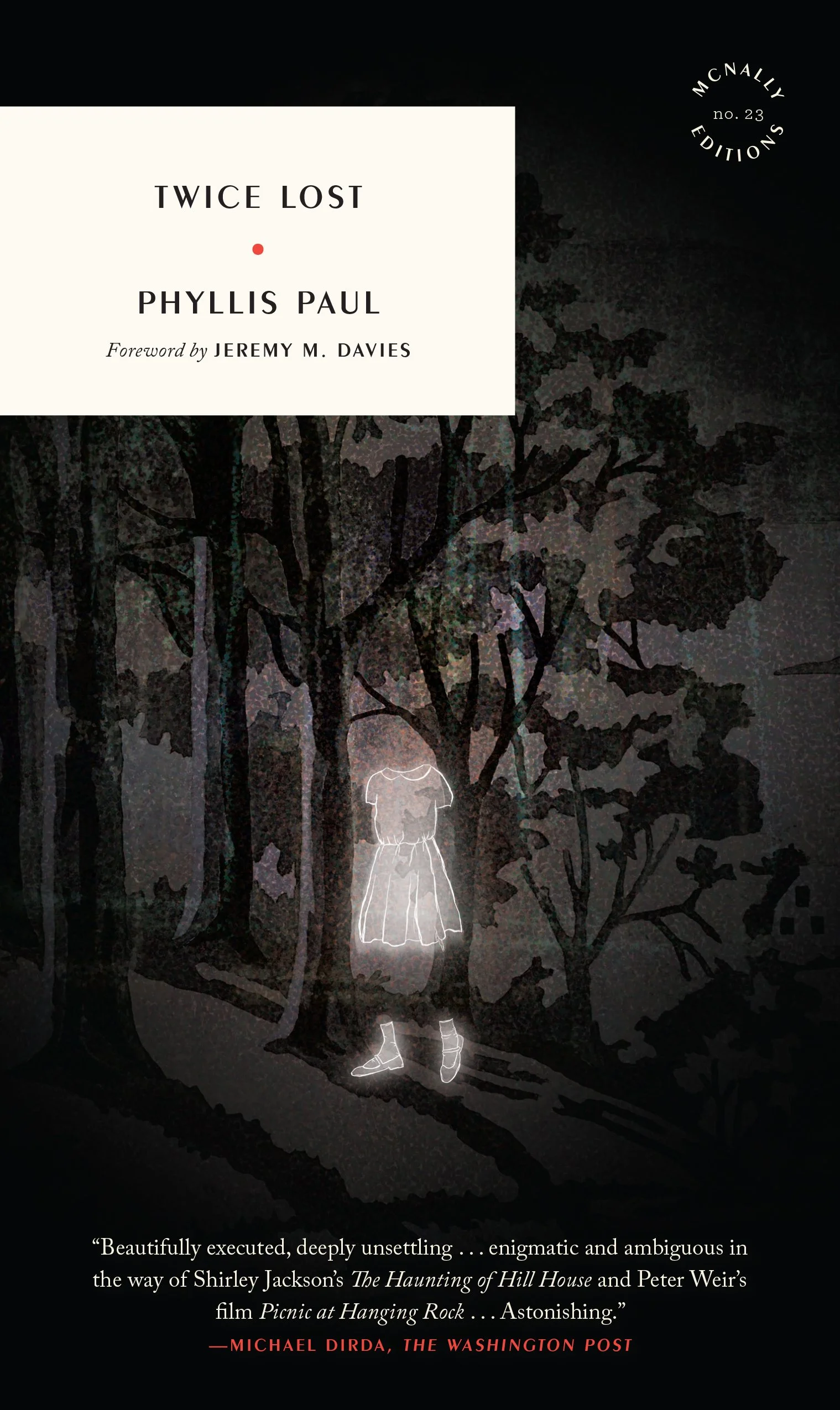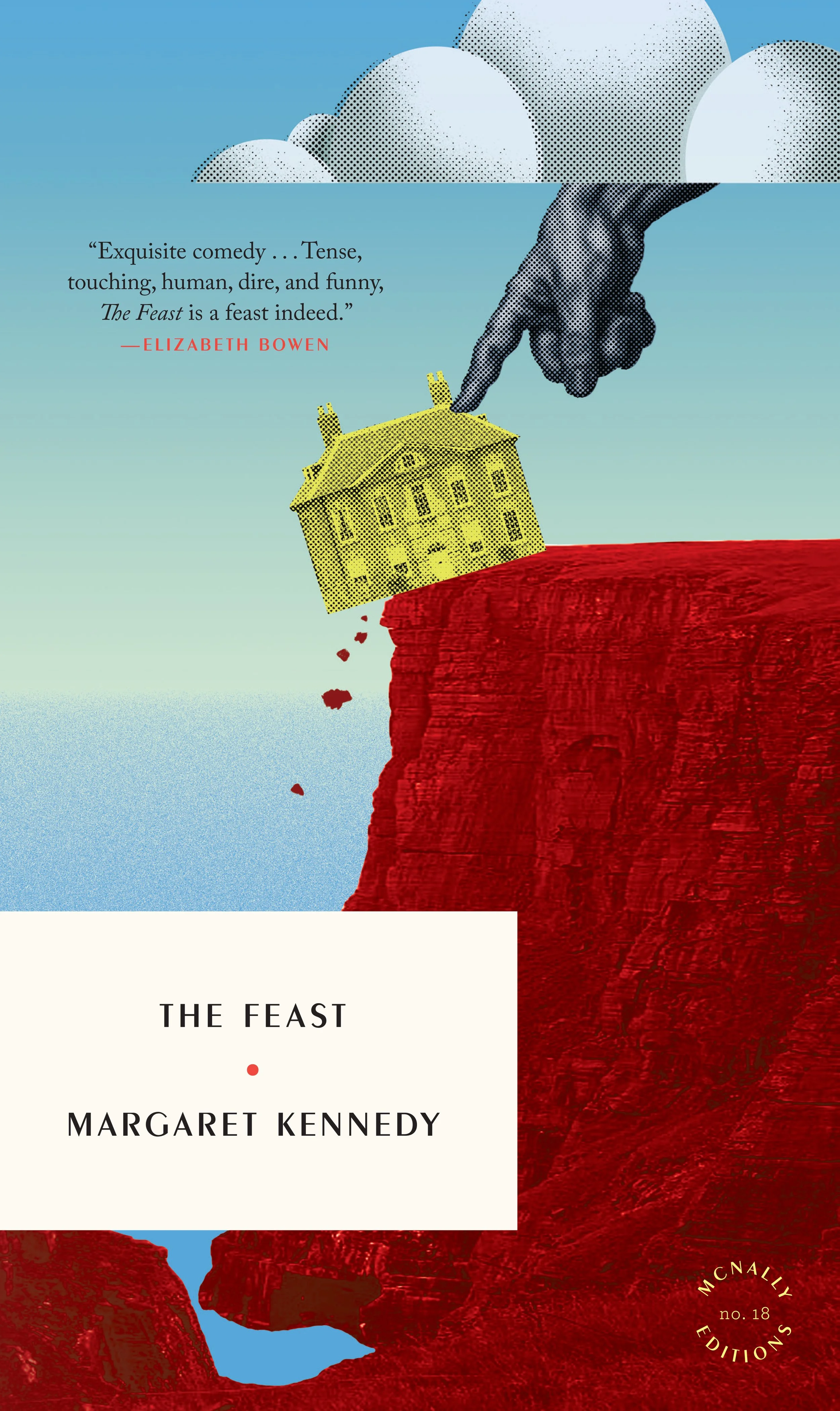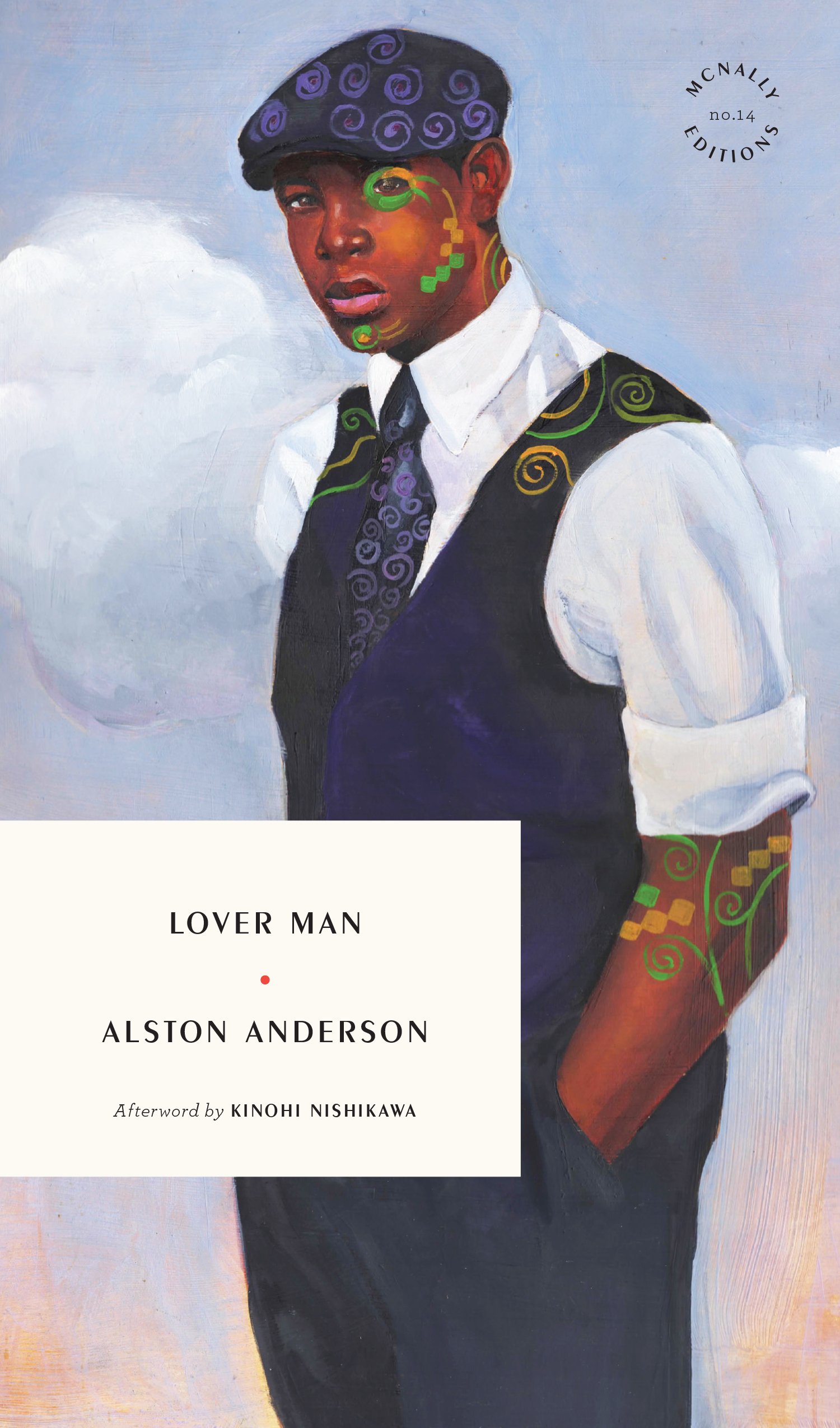In a rustic, idyllic English village, on a summer’s day, in the midst of a carefree tennis party, a fragile, needy child, left too much on her own, vanishes from her family’s front garden. Years pass and the mystery persists: an enduring torment for the teenage Christine Gray, the last person to see Vivian alive. Perhaps if she’d shown the girl a little kindness, and seen her safely home, Vivian might still be with them? Yet when someone claiming to be a grown-up Vivian returns to the land of the living, the enigma only deepens, threatening to consume the wicked and innocent alike.
Equal parts The Turn of the Screw, Picnic at Hanging Rock, and gothic thriller, Twice Lost was admired by such authors as Elizabeth Bowen, Rebecca West, and John Cowper Powys—yet the strange, haunting novels of Phyllis Paul are themselves a mystery with no simple solution. Virtually lost to time even before her death, her novels have been out of print for more than fifty years, and fetch fantastic prices in the rare book trade.
“Beautifully executed, deeply unsettling, [Twice Lost] is enigmatic and ambiguous in the way of Shirley Jackson’s The Haunting of Hill House and Peter Weir’s film Picnic at Hanging Rock . . . Its first chapter immediately creates, then intensifies, an unnerving atmosphere of mystery and menace . . . Astonishing.”
—Michael Dirda, Washington Post
“Haunting, fascinating, wonderful.”
—San Francisco Chronicle
“Alternating the knotty revelations of a whodunnit with subjective dives into the uncanny spell of Henry James’s The Turn of the Screw and vivid depictions of the pastoral English countryside, Paul’s narrative leads readers down the garden path only to send them backtracking through a hedge maze of competing interpretations, under the gradually darkening sky of a fallen Eden . . . Paul [is] a writer worthy of comparison with such diverse sensibilities as Patricia Highsmith’s mordant psychological suspense and Charles Williams’s Manichean metaphysical fantasy. An odd duck with iridescent plumage.”
—David Wright, Library Journal
“A quiet, subtle spellbinder is a skillful piece of highwire work . . . Unnatural events, or are they supernatural, are balanced by a shrewd sense of character, motivation and manipulation, and provide a superior, teasing and very different kind of suspense story.”
—Kirkus Reviews, Starred Review
“Twice Lost gains strength from its surprisingly artful blend of literary fiction and mystery . . . The effect reminds me of the way Elena Ferrante moves between genres in the Neapolitan quartet, allowing herself almost anything in the quest to unsettle and seduce the comfortable reader. But it is also emotionally precise, and infernally effective. In Twice Lost, feelings proliferate, genres cross, and the plot thickens all at once. The effect is contrapuntal in the best way.”
—Joanna Biggs, Harper’s
“Phyllis Paul is a writer of hints and half-lights. Her suburban scene is shadowy with empty roads and tall trees in the dusk. Twice Lost is not an easy book to read but neither is it an easy book to forget.”
—Times Literary Supplement
“Paul animates her characters with striking qualities . . . The writing is razor-sharp . . . Paul sustains a delightfully macabre mood in this worthy artifact.”
“[Paul writes with] an almost medieval sense of good and ill. One enters a different world—compelling, fearful, mysterious. The characters live, the place has frightening reality . . . a kind of violent beauty.”
—Elizabeth Jane Howard
"Paul’s great subject, on the page and off, was darkness—darkness both mundane and metaphysical. To survive, her characters cling to the dark, as much to hide their sins as to keep the truth at a safe distance."
—Jeremy M. Davies, from the Foreword
Phyllis Paul published eleven novels between 1933 and 1967, but otherwise left almost no trace of herself. She was unmarried, lived quietly, and was intensely private. She died in 1973, at the age of 70, after being hit by a motorcycle. If not for a label on her pocket handkerchief, her body would have remained unidentified.
Jeremy M. Davies is a writer and editor who lives in New York.
Twice Lost • Paperback ISBN: 9781946022486
Oct 24, 2023 • McNALLY EDITIONS no. 23
5" x 8.5" • 272 pages • $18.00
eBook ISBN: 9781946022493











